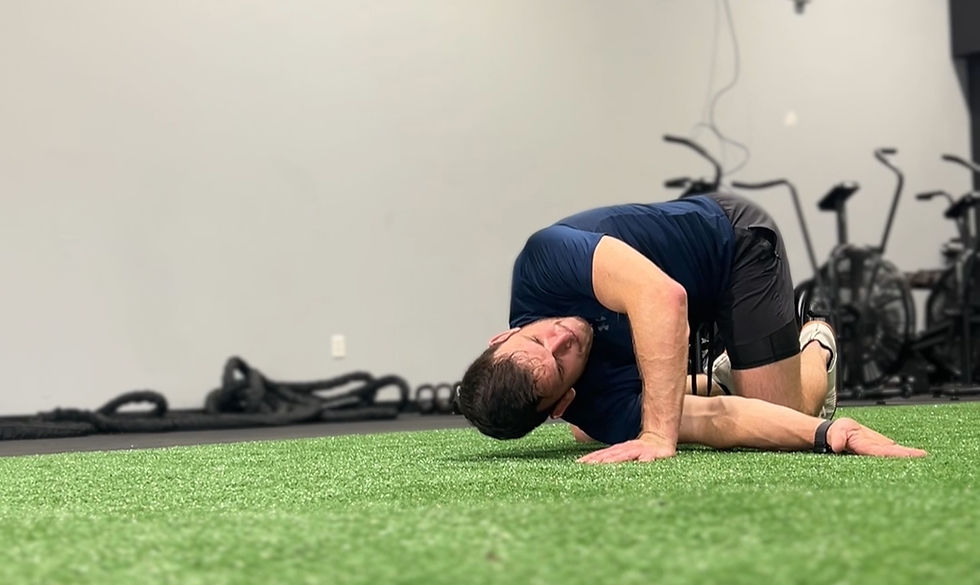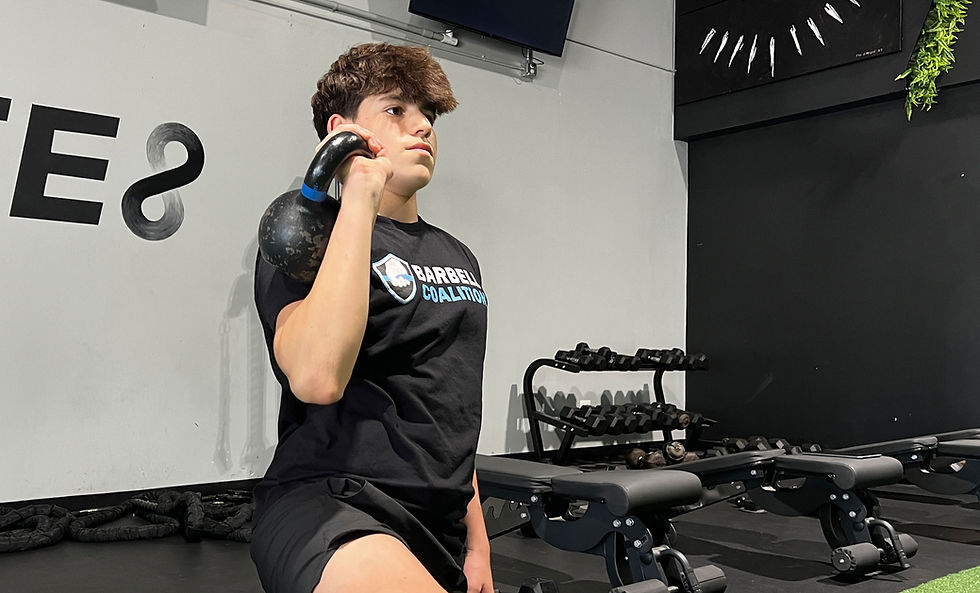How to Build True Speed & Agility - Cedar Park Athlete Training
- Ben Lustig
- Sep 22, 2025
- 2 min read

Many parents assume that to get faster, their athlete just needs to run more.
Here's the problem: endless sprints or conditioning laps don't always translate to game speed.
At Barbell Coalition here in Cedar Park, we develop true speed & agility for our youth athletes by developing specific qualities in training.
The Misconception About Running More
It’s common for coaches and parents to lean on the “more is better” approach.
If an athlete wants to improve, just add more volume.
But when it comes to speed, this approach often misses the mark.
Running lap after lap or doing endless sprints mainly builds endurance, not explosiveness.
Endurance has its place, but it won’t help your athlete win that 10-yard sprint to the ball or explode past a defender.
Game-changing speed is built differently.

What Actually Improves Speed for Athletes
Speed is more than just moving your legs quickly. It’s about how much force an athlete can put into the ground with each stride and how efficiently they can repeat that stride.
Here are the main pieces that matter:
Strength – Stronger legs mean more power with every step. Think of it like upgrading an engine: the stronger the athlete, the more horsepower they produce.
Power – Strength applied explosively creates acceleration. Exercises like jumps, sprints, and trap bar jumps train athletes to produce force quickly.
Technique – Sprint mechanics and change-of-direction drills help athletes move more efficiently, waste less energy, and maximize their speed.
Simply put, more laps don’t create these qualities. Smart training does.
The Risk of "Over-Running"
Pushing an athlete to run more and more can actually make things worse. Here’s how:
Overuse injuries – Shin splints, sore knees, and hip pain are common in athletes who do too much repetitive running.
Fatigue – Muscles never recover, which means athletes actually slow down instead of speed up.
Burnout – Training starts to feel like punishment, and motivation disappears.
This is why balance is so important. Running has its place, but it can’t be the only tool in the toolbox.

What Parents Should Look For in Training
f you want your athlete to truly get faster, here’s what their training program should include:
Strength training to build the horsepower behind every stride.
Power development with jumps, sprints, and explosive movements.
Speed drills focused on mechanics, acceleration, and reaction.
Recovery and balance to make sure gains actually stick.
The goal isn’t to run athletes into the ground — it’s to build them up so they can dominate when it counts.
Cedar Park/Leander Parents: Our Training Will Make Your Athlete Faster & Stronger - Guaranteed
If your athlete has been running endlessly but not seeing results, it’s not their effort that’s the problem — it’s the approach.
Running more doesn’t make them faster. Strength, power, technique, and proper training do.
With our 12 week level up, we guarantee we'll make your child a better athlete - or they train free until we do.




Comments